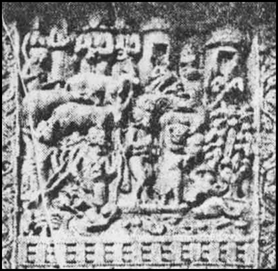Gautam Buddha opposed casteism and allowed people of different social groups to join Buddhism and Sangha. Explain.
Buddha was a great religious teacher as well as pioneer social reformer. He did not favour casteism. He believed in equality of all human being.
The Buddha's followers came from many social groups. They included kings, wealthy men, and gahapatis, and also humbler folk: workers, slaves and craftspeople. Once within the sangha, all were regarded as equal, having shed their earlier social identities on becoming bhikkhus and bhikkhunis. The internal functioning of the sangha was based on the traditions of the gana sanghas where discussions took place to forge a consensus. If that failed decisions were taken following a vote on the subject.
Moreover the Buddha regarded the social world as the creation of humans rather than of divine origin. Individual effort was expected to transform social relations. The Buddha emphasised individual agency and righteous action as the means to escape from the cycle of rebirth and attain self-realisation and nibbana, literally the extinguishing of the ego and desire – and thus end the cycle of suffering for those who renounced the world.





